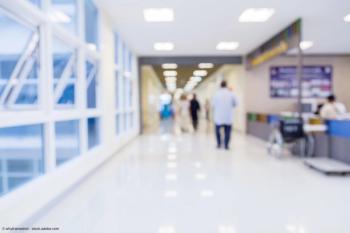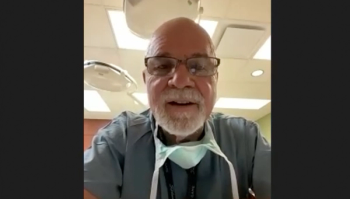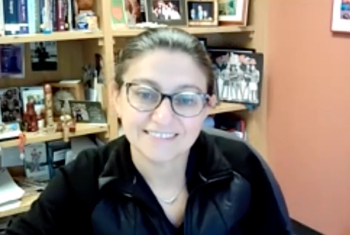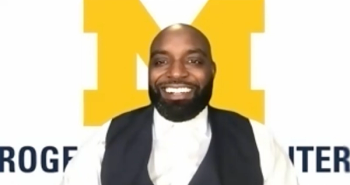
2 urologists provide aid for Ukrainian refugees amidst the Russo-Ukrainian war
On February 26, 2022, days after Russia invaded Ukraine’s capital of Kyiv using a series of missiles, Laura Bukavina, MD, a urologic oncology fellow at Fox Chase Cancer Center in Philadelphia, Pennsylvania, flew to the Polish-Ukrainian border with her family to help aid Ukrainian refugees who were fleeing the war. Twelve hours later, Alberto A. Castro Bigalli, MD, an incoming resident at Temple Urology in Philadelphia, Pennsylvania, joined her in this effort.
“I felt everyone was asking [about] and very compassionate toward everything I was going through, but I felt helpless in terms of what I [could] do for my family, as well as for a lot of my friends,” said Bukavina in a recent interview with Urology Times®. Bukavina had loved ones residing in Ukraine during the attack, and some who are still sheltering in the country. “I felt that I just needed to do something.”
The tensions between the countries stem from a long history that dates back to the 1930s, explained Bukavina. Even after Ukraine gained independence in the 1990s, there is still a “governmental predisposition to feeling that Ukraine is still under Russian rule,” she said. Over the past 10 years, in which Ukraine has been more interested in joining the European Union and the North Atlantic Treaty Organization, those tensions have risen, leading to aggressive measures taken by Russia.
Since then, men and women—trained soldiers or not—have taken up arms to protect Ukraine from further Russian invasion. Women, children, and elder men who could not to fight, however, have chosen to flee the country to protect themselves.
“In my perspective, the reason that people are fleeing is [because]…there are laws that bound any conflict together, but they're not being followed,” said Castro Bigalli. “Women and children are being massacred daily, despite there being safety corridors. Residential structures are being bombed. Hospitals, including maternity and children's hospitals, are being bombed. So, people just generally don't feel safe.
According to the physicians, there were 20,000 to 40,000 refugees crossing into Poland every day. Bukavina and Castro Bigalli spent 2 weeks at the border providing medical care, organizing and distributing medical supplies, and helping in any way that they could. That even included creating a makeshift daycare for young kids migrating, as many of the refugees were children, said Castro Bigalli.
Given the sheer number of donations and the lack of medical professionals on site, Bukavina and Castro Bigalli joined forces with Sauveteurs Sans Frontièrs, or Saviors Without Boundaries, to work in 12-hour shifts. Bukavina, who speaks fluent Ukrainian, offered to take the night shift along with Castro Bigalli because there were no interpreters during the nighttime.
What they remembered most, however, wasn’t the freezing temperatures or chaos of the masses. It was the resilience of the Ukrainian refugees, some who could not even bring essentials with them as their arms were already full.
“They would be in their pajamas, they wouldn't have gloves, they wouldn't have hats, they would pick up things on the way. So, they wouldn't have their medications. They wouldn't have their insulin—life-saving medication for a lot of people. And people who didn't have time to get belongings into big bags, they would drop them on the way because they would have 2 or 3 kids to carry with them. Who has the strength for a bag when you have to carry your own kids, right?” said Bukavina.
“You could see how beat they were after such a long journey coming to this place,” added Castro Bigalli. “[They were] letting their body relax and [saying], ‘Okay, I made it,’ still knowing that there's so much more journey left, because, yes, you make it a Poland, but you're only at the border. So, where else do you go? What else do you do? Do you stay in Poland? Do you go to another country [where] you don't speak the language?”
After going on the mission, Bukavina and Castro Bigalli agreed that it was an experience of a lifetime, one that took them out of the bubble they were used to in the US. Castro Bigalli, who has had experience going on missions, recommended that more physicians volunteer in these types of circumstances. He remembered meeting a physician who was coming to the border just as they were leaving. The physician was ecstatic to apply his skills to this crisis situation. “He talked about how his practice had become complacent…[Going to the border] renewed his desire to go into medicine,” said Castro Bigalli. “You [could] just see this new spark in him. He's going to go back to whatever country he's from [with] a newfound appreciation for things. And I think anyone can do that.”
The war is not over in Ukraine, so Bukavina is still gathering donations and raising awareness for the refugees. Even if physicians cannot provide the on-site support for them that Bukavina and Castro Bigalli did, the Cleveland Maidan’s Association, MedWish, and Fox Chase Cancer Center are just a few mentioned resources that serve as opportunities for fellow physicians to help remotely.
Bukavina additionally stresses the importance of keeping the matter alive in the news so that Ukrainian refugees can get the care they will eventually need—not only children who are going to need help transitioning into new homes and schools, but also soldiers and those who took up arms who will need reconstructive surgery and additional treatment following battle.
“The consequences of what's happening now are going to be felt by a lot of these people for a long time,” concluded Bukavina.
Newsletter
Stay current with the latest urology news and practice-changing insights — sign up now for the essential updates every urologist needs.






